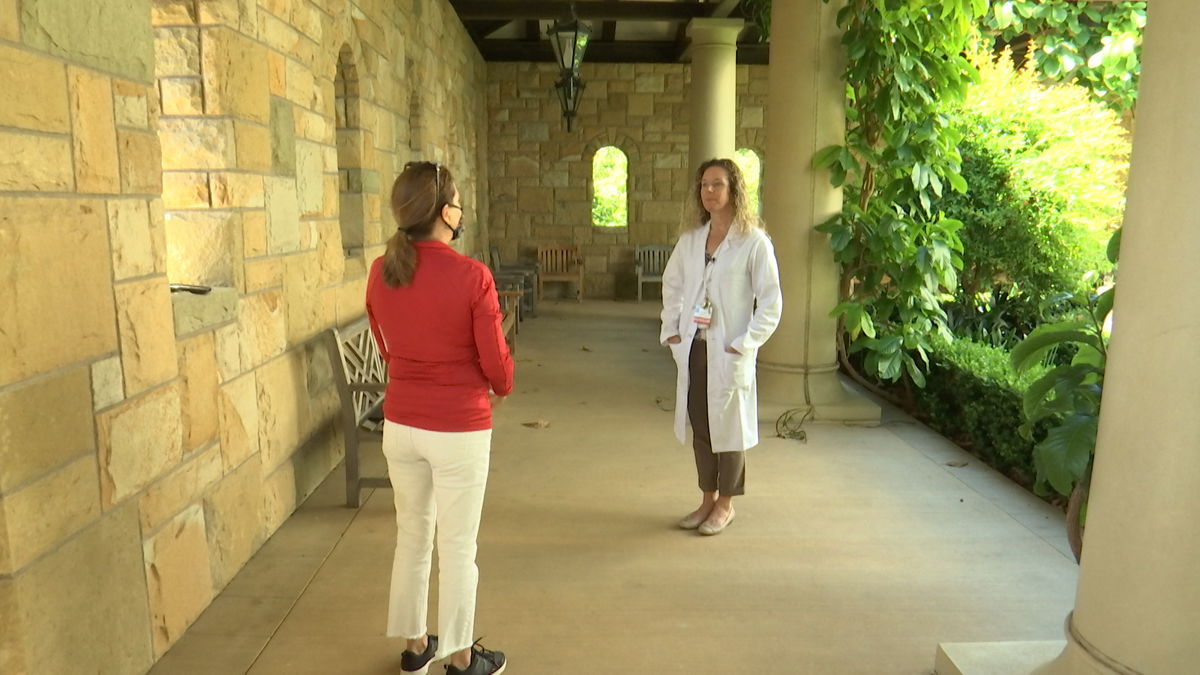Infectious Disease expert with Cottage Hospital discusses complexities of COVID testing results, re-openings
SANTA BARBARA, Calif. - Dr. Lynn Fitzgibbons, an Infectious Disease expert with Cottage Hospital, said she's excited about the three new community-based testing sites in Santa Barbara County. Ideally, health experts would like to know who has the coronavirus, with or without symptoms.
However, she also warned that the PCR (polymerise chain reaction) nasal test is not 100% accurate.
"To diagnose COVID-19, the PCR test is a really, really important tool. But it is not the only tool. And so what I mean is, a doctor who is evaluating a patient who feels sick, has classic symptoms of COVID-19, they would do a PCR test and most of the time that PCR test will come back positive. However, if that test is negative, it's still the responsibility of the doctor, the provider, to look at the whole picture to say, 'This is a negative test but this patient has classic symptoms. Perhaps they have, um, heavy contact with someone with this disease.' And so, as a physician for example seeing that patient, I may say, 'I suspect that negative test was a false negative.' Unfortunately, we've seen false negatives perhaps 20 to 30% of the time and it's been really a challenge."

Dr. Fitzgibbons talked about the spike in COVID-19 cases in Santa Maria.
"I really appreciate the Health Department looking into this as thoroughly as it sounds like they have. Sounds like they've really uncovered every rock looking for common threads amongst the patients." She added, "They haven't found one, even two or three explanations to link a lot of the cases. So, what does that mean to me as an Infectious Disease physician? It tells me that there simply is ongoing community spread."
She also touched on the complexities of antibody testing and said right now, a positive antibody test alone does not qualify a person to donate plasma.
"We would hate for someone to have an antibody test for it to be positive for there to even be a tiny risk that they actually don't have the right antibodies in their blood, to go through the effort of donating plasma and then again, worst case scenario, that there are vulnerable patients in the hospital relying on that antibody test, that plasma, and possibly receiving it from somebody who had a false positive."
As restaurants and businesses reopen further under the state's guidelines, Dr. Fitzgibbons said she would recommend asymptomatic employees most actively engaged with the public (i.e., food servers and cashiers) be tested every two to three weeks.
She also urges the community to stick with the six feet physical distancing, frequent hand washing and, wearing masks out in public as we head into what she calls "the second half."
"I think I'd just remind everyone in our community, hey, we're winning this game! The Memorial Day weekend is ahead of us. Summer's ahead of us. But, we are winning and I think, uh, just keep it up."
